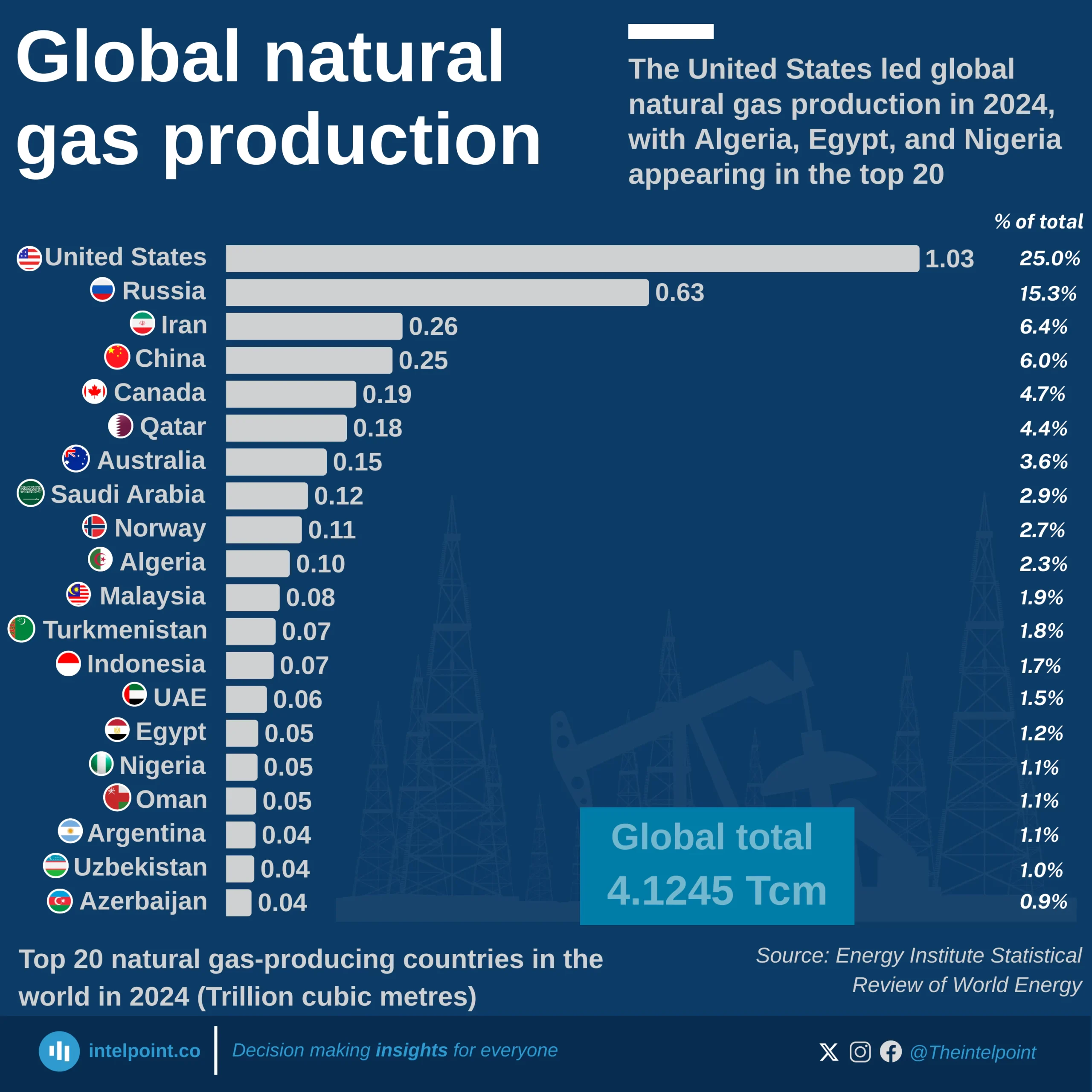Across the globe, diesel prices reveal the stark contrast in energy policy, subsidies, and resource wealth. Venezuela and Iran stand out dramatically, offering diesel at under a cent per [litre,] prices that defy market logic and underscore intense state [subsidisation.] Libya, despite its economic and political volatility, holds the cheapest diesel rate in Africa at $0.028, followed closely by Algeria and Egypt. Notably, six African nations [are]in the global top 20, a testament to the continent's reliance on fuel subsidies to cushion public costs. Meanwhile, oil-rich Middle Eastern countries like Kuwait, Saudi Arabia, and Qatar also maintain low diesel prices, reinforcing the region's tradition of using energy affordability as a socio-economic tool.
It is also important to consider the standard of living when looking into this data, as low prices do not always equate to affordability for the local population.
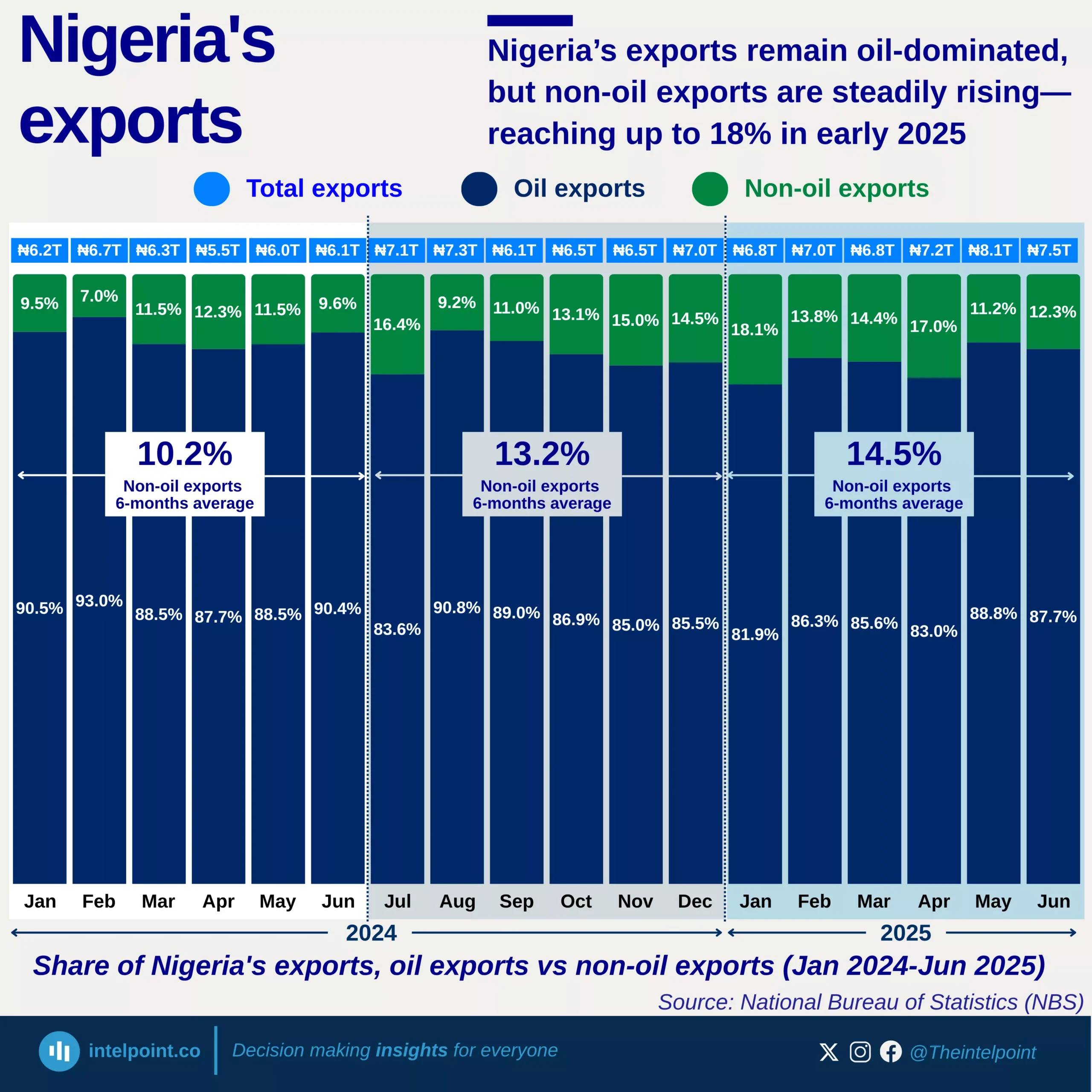
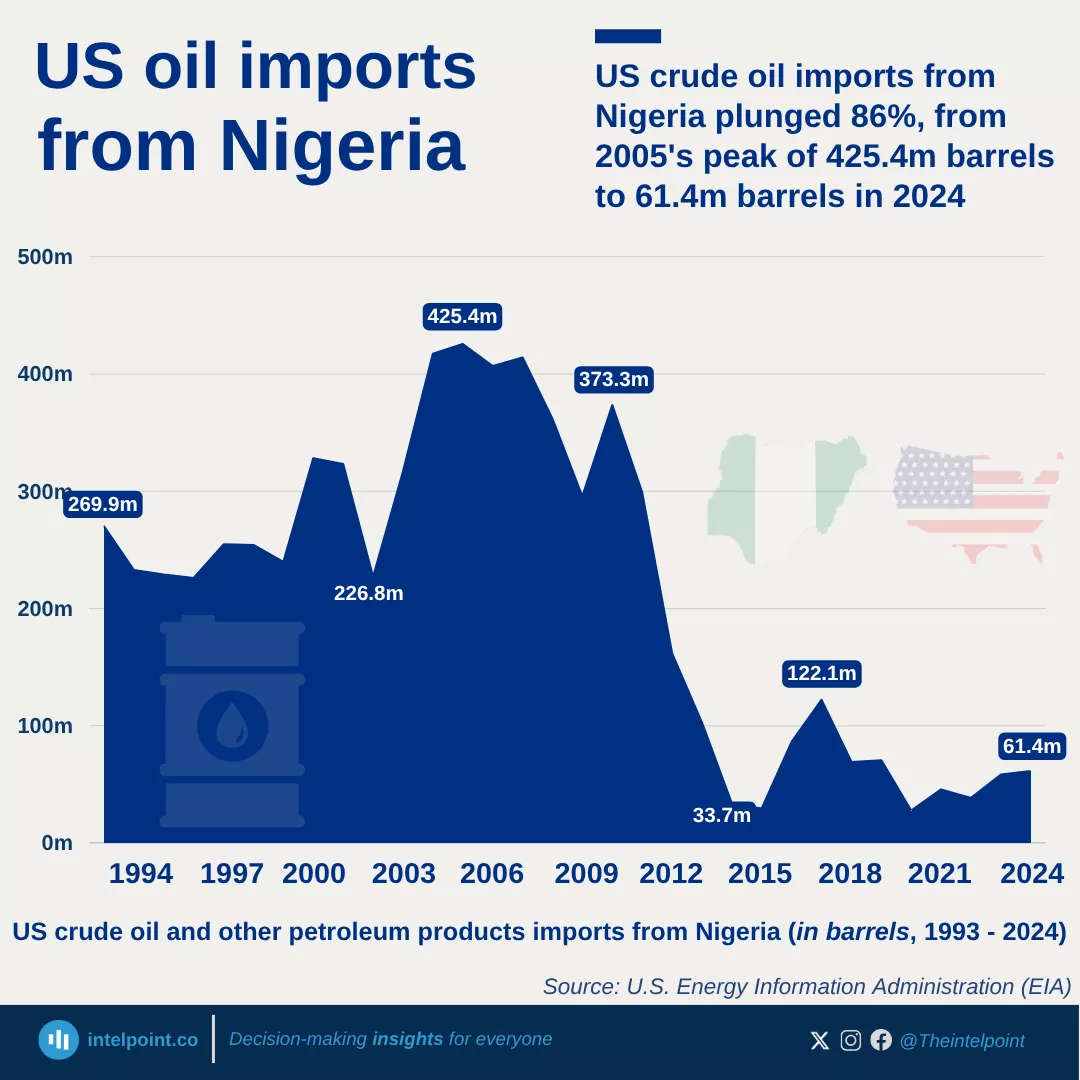
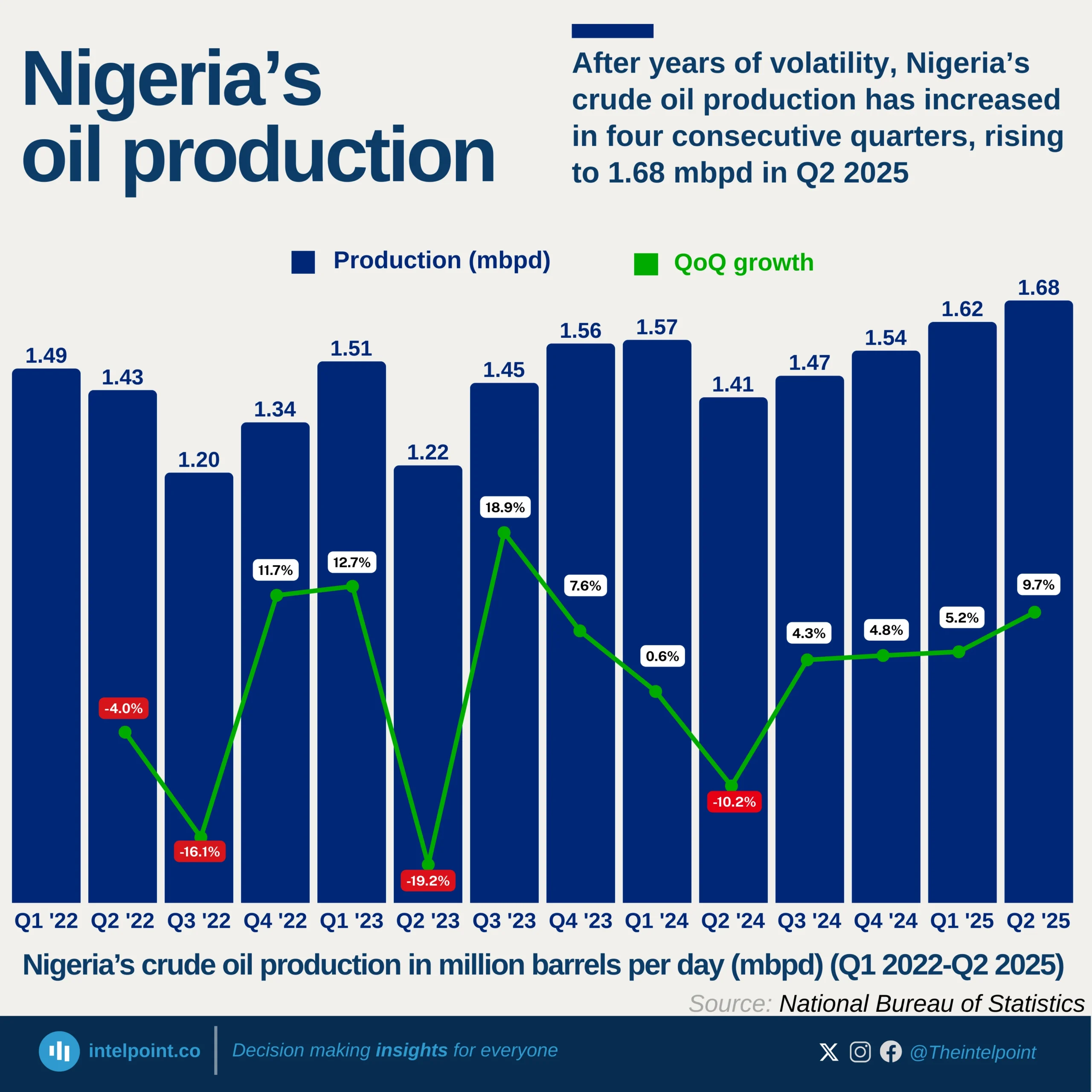
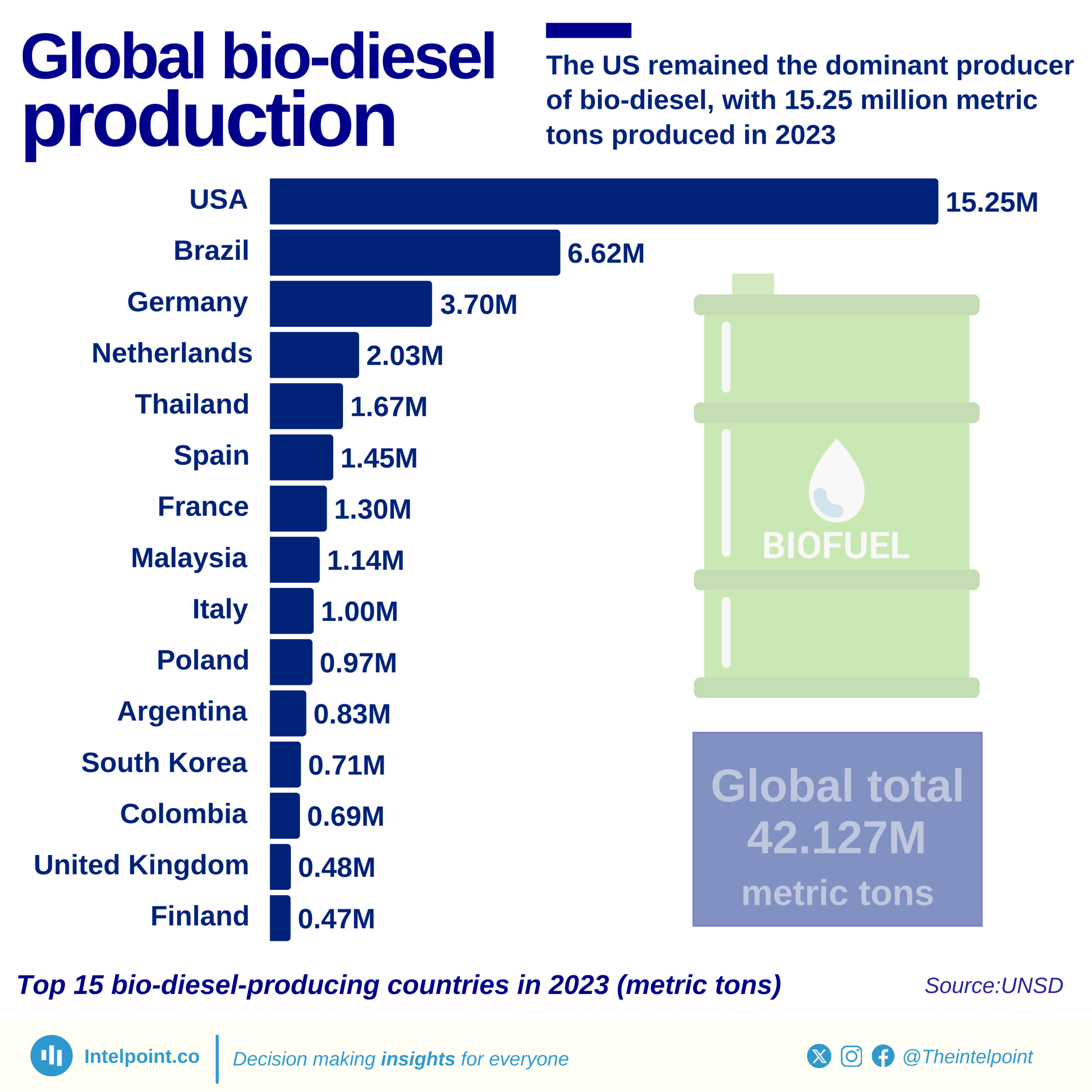
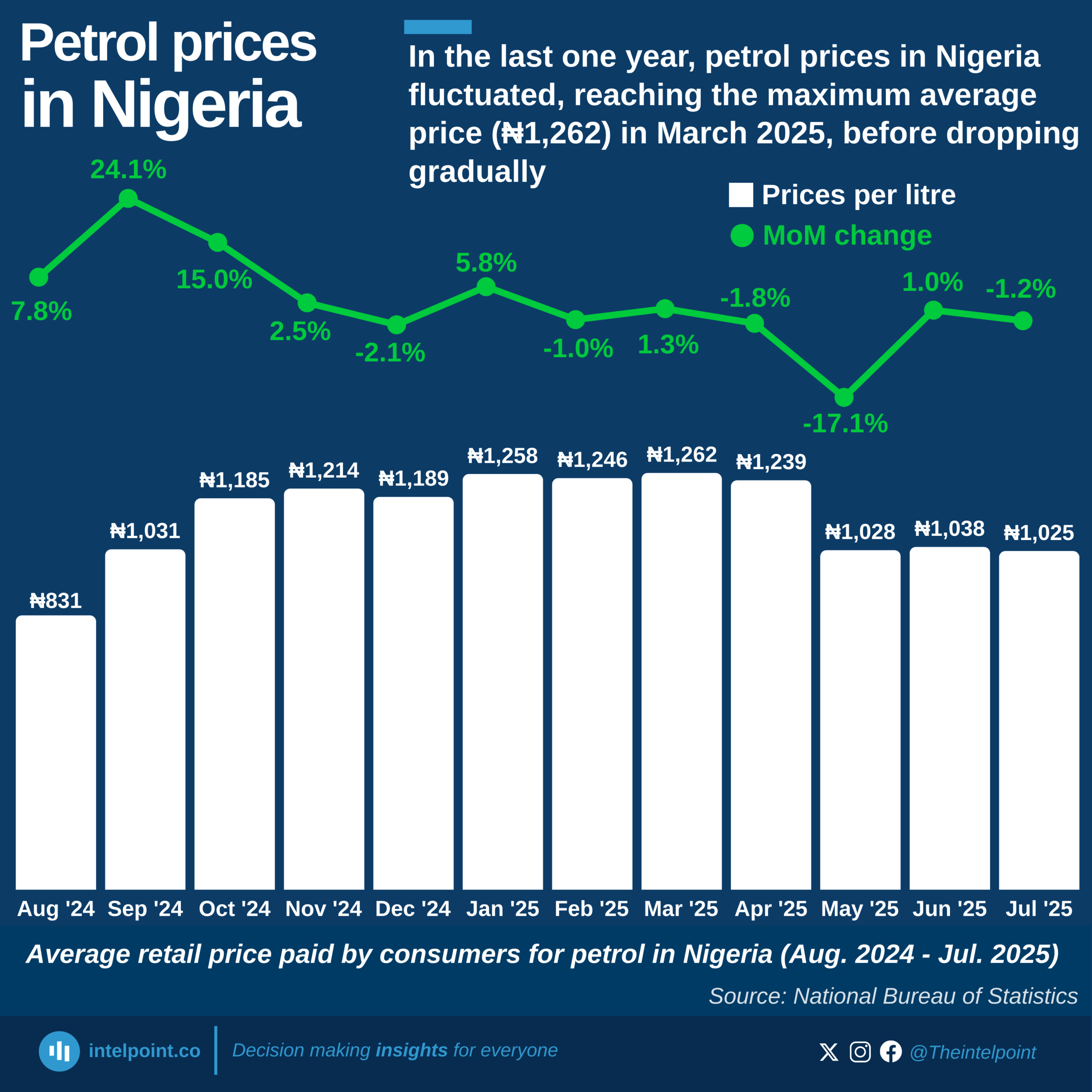
The United States dominates global natural gas production in 2024, contributing 1.03 trillion cubic metres (Tcm), nearly one-quarter of the world’s total.
Russia (0.63Tcm) and Iran (0.26Tcm) follow as the second and third largest producers.
China (0.25Tcm) and Canada (0.19Tcm) also feature strongly, rounding out the top five producers.
Collectively, these top five countries account for more than 50% of global production.
Emerging producers like Nigeria, Egypt, and Azerbaijan contribute significantly to the supply but remain far behind the leading nations.
